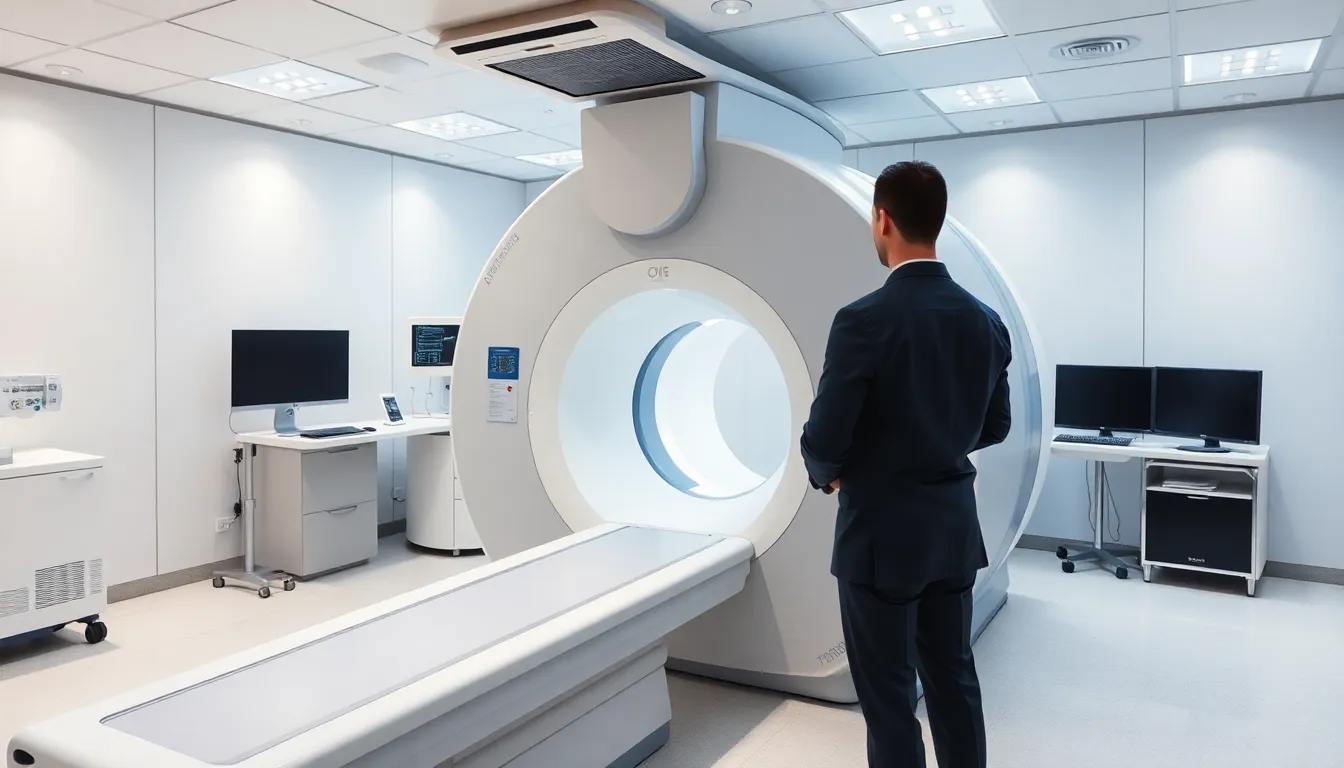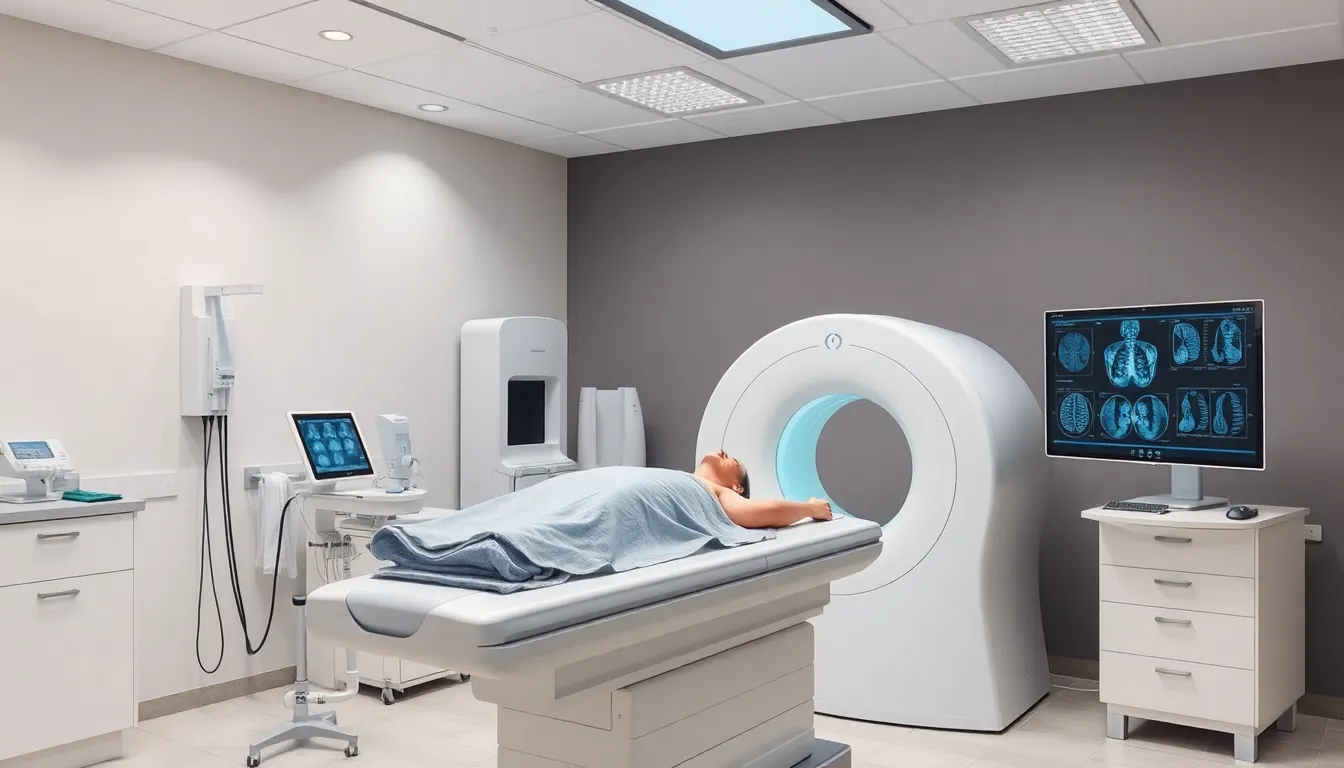Table of Contents
ToggleIn the land down under, where kangaroos hop and the sun shines bright, health is a top priority. But when it comes to getting a full-body MRI scan, many wonder if their wallet will take a leap too. The cost of these scans can feel like a game of hide and seek, with prices varying more than a koala’s nap schedule.
Overview of Full-Body MRI Scans
Full-body MRI scans utilize magnetic resonance imaging technology to create detailed images of the entire body. This imaging technique enables professionals to assess various health conditions, facilitating early diagnosis and effective treatment. Patients often choose full-body scans for comprehensive evaluations that target multiple areas simultaneously.
Costs for these scans vary significantly across Australia. Factors influencing the price include the facility’s location, equipment quality, and specific health needs. Average prices range from AUD 500 to AUD 3,000, depending on the chosen provider and any additional services required.
Availability of full-body MRI scans also varies. Urban centers typically offer more access than rural areas, often resulting in shorter wait times. Health insurance coverage may help offset some costs, but it’s crucial to verify individual policies for specific details.
Consultation with healthcare professionals helps determine the necessity of a full-body MRI scan. They can provide guidance on whether the benefits outweigh the costs based on individual health situations. Moreover, understanding potential risks associated with MRI scans remains important, although they’re generally considered safe.
Emerging technology introduces innovations in MRI scanning. Techniques like functional MRI (fMRI) and diffusion-weighted imaging enhance diagnostic capabilities, potentially influencing costs and availability as these methods become more prevalent. Expanding access to full-body MRI scans will likely improve overall health outcomes in Australia.
Factors Influencing Cost

Several factors influence the cost of full-body MRI scans in Australia. Understanding these elements helps individuals make informed decisions.
Type of Facility
The type of facility plays a significant role in determining MRI scan costs. Private hospitals and specialized imaging centers often charge more due to advanced technology and experienced staff. In contrast, public hospitals may offer lower prices, but wait times can be longer. Facilities with cutting-edge equipment typically ensure better image quality, justifying higher fees. Additionally, accredited centers might adhere to stricter safety regulations, impacting overall costs.
Location
Location affects the price of full-body MRI scans across Australia. Urban centers such as Sydney or Melbourne tend to have higher costs due to increased demand and operational expenses. Conversely, rural areas might offer more affordable pricing, reflecting lower demand and competition. Access to skilled professionals and specialized equipment in metropolitan regions often contributes to price differences. It’s important to consider travel expenses when seeking out the best pricing options.
Insurance Coverage
Insurance coverage significantly impacts out-of-pocket costs for full-body MRI scans. Health insurance policies can vary widely in terms of what they cover, making it essential to check specific plans. Some insurers may require pre-authorization or have limits on the number of scans per year. Patients seeking a full-body MRI should contact their providers to understand coverage details, including any potential co-pays. Awareness of the benefits that health insurance offers can significantly alleviate the financial burden associated with these diagnostic imaging procedures.
Typical Costs in Australia
Costs for full-body MRI scans can differ significantly based on various factors. Patients often face choices between private and public healthcare systems, each with its own pricing structures.
Private vs Public Healthcare
Private healthcare facilities tend to charge higher prices for full-body MRI scans. This expense reflects advanced technology and experienced staff found in specialized imaging centers. Public healthcare options, however, generally provide lower costs. Patients may experience longer wait times in these settings. Choosing between the two can greatly impact both the timing and price of the scan.
Estimated Price Range
The estimated price range for full-body MRI scans in Australia varies from AUD 500 to AUD 3,000. Urban centers typically display higher costs due to increased demand and operational expenses. Meanwhile, rural areas might present more affordable options. Insurance plans may cover part of these expenses, so verifying individual coverage is essential for patients.
Additional Expenses to Consider
Additional costs accompany full-body MRI scans. Understanding these can help patients prepare financially.
Preparation Fees
Preparation fees arise based on specific requirements before the procedure. Some facilities charge for preliminary consultations, while others may ask for blood tests or necessary imaging. Patients might also face fees for any necessary sedatives or other medications. Considering that these fees can add AUD 100 to AUD 500, knowing potential additional costs assists in budgeting for the procedure.
Follow-Up Consultations
Follow-up consultations often occur after the MRI. Doctors typically review results and recommend further treatment based on findings. Consultations can range from AUD 100 to AUD 300, depending on the provider’s rates and expertise. Follow-up appointments ensure patients receive comprehensive care, though they can contribute significantly to total expenses. Understanding these costs helps patients make informed choices regarding their health and financial commitments.
Navigating the costs of full-body MRI scans in Australia can be complex. With prices ranging widely based on location and facility type, patients must be proactive in understanding their options. It’s crucial to consider not just the scan itself but also any additional expenses that might arise during the process.
Consulting healthcare professionals can provide clarity on the necessity of the scan and help weigh the benefits against the financial implications. By being informed about insurance coverage and potential co-pays, patients can better manage their healthcare expenses. Ultimately, prioritizing health while staying aware of costs can lead to more effective decision-making in obtaining necessary medical imaging.





